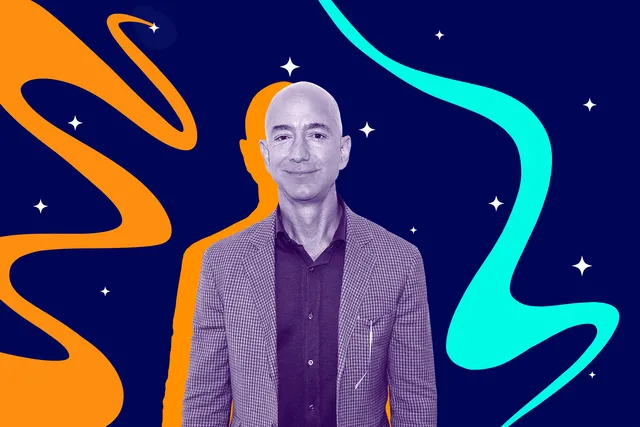Droves of subscribers canceled because of the spiked Washington Post endorsement.
The decision for The Washington Post to sit out the endorsement game this election cycle has sparked significant backlash. Over 200,000 readers canceled subscriptions in just one weekend—a staggering figure considering that’s fifty times more than the net growth in subscribers the Post achieved for nearly the entire year. NPR reports that these cancellations make up roughly 8% of the paper’s paid subscribers, and the number is still climbing.
The abrupt announcement left many questioning the motives behind it. According to insiders, the call came directly from Jeff Bezos himself, sparking speculation about his motivations. Just as Post CEO Will Lewis was declaring the paper’s new neutrality, executives from Bezos’s space company, Blue Origin, were reportedly meeting with presidential candidate Donald Trump. This timing has prompted critics to allege that Bezos’s move is an attempt to curry favor with Trump in anticipation of a potential victory, especially in light of the government contracts held by Amazon and Blue Origin.
Lewis’s defense of Bezos raised more questions than it answered. In a carefully worded statement to CNN, Lewis insisted that Bezos had “not read or opined on any draft,” though he avoided directly denying Bezos’s involvement in the decision. The New York Times’ Ben Mullin even reported that Bezos had been vocal about his discomfort with presidential endorsements as early as September.
Amid the blowback, Bezos addressed the controversy directly in an op-ed in the Post, claiming the decision was “principled” rather than politically motivated. He also dismissed suggestions of a quid pro quo, asserting that the choice was driven by concerns over declining trust in the media. Yet many readers see this as damage control rather than a genuine explanation. By failing to provide a clear rationale that aligns with the values of his audience, Bezos seems to have overlooked his customer base—the very group he famously told Amazon employees to obsess over.
Eroding Customer Trust
One of the biggest criticisms facing Bezos today is how far he seems to have strayed from his own philosophy. In his 2016 letter to Amazon shareholders, he championed a philosophy of “obsessive customer focus,” describing it as essential to maintaining the company’s vitality. Bezos argued that centering a business on customer satisfaction is the key to longevity, a philosophy that helped Amazon become a global juggernaut.
Yet by choosing neutrality over transparency, Bezos has introduced the appearance of a conflict of interest—anathema in journalism. To readers, even the perception of bias can undermine trust as much as an actual bias would. The outrage has been palpable. NPR noted that three of the Post’s ten most popular stories over the weekend were by staffers critical of the paper’s non-endorsement stance. The Post’s humorist Alexandra Petri even published a column titled “It Has Fallen to Me, the Humor Columnist, to Endorse Harris for President,” which became the site’s top-read article. The fallout signals that Post readers don’t appreciate being caught in what appears to be corporate maneuvering, rather than a principled editorial stance.
A Looming Credibility Crisis?
The backlash against the Washington Post’s decision points to a broader issue of credibility. Readers expect impartiality from their news sources, especially during an election year. However, hiring Will Lewis—whose career includes ties to the infamous Sunday Times phone-hacking scandal—was already a risky choice for Bezos. Many in the industry saw Lewis as an odd fit for an institution like the Post, and recent events have only reinforced that sentiment.
At a time when tech giants like Amazon and Facebook are facing increased scrutiny from regulatory bodies, Bezos’s decision has drawn attention to his sprawling empire. Critics argue that the incident illustrates precisely why conglomerates like Amazon pose risks to democratic institutions. By mixing politics with a media platform, Bezos may be muddying the waters between corporate interests and public service journalism. Calls for antitrust action and even breaking up the largest tech firms have gained traction, particularly under the Biden administration, which has taken a harder line on monopolistic practices. The Post scandal underscores just how intertwined Bezos’s various enterprises are and highlights the potential for conflicts of interest.
Can Bezos Win Back His Readers?
For years, Bezos’s relentless focus on customer satisfaction was the stuff of legend, helping Amazon transform retail by placing customers’ needs above all else. This same ethos was expected to help Bezos revitalize the Washington Post after acquiring it in 2013. Instead, recent decisions have cast doubt on whether Bezos fully understands the nuances of media and the trust it requires. Media credibility is a delicate thing, and in journalism, the perception of bias can alienate readers in droves. Ironically, this fallout may be a reminder that sometimes, in the pursuit of power, even the best intentions fall short.
Bezos claims that the timing of the non-endorsement announcement—so close to the election—was the result of “inadequate planning,” an explanation that rings hollow for many. Rather than reassessing his customer-centric philosophy, he appears to have leaned into damage control. As readers walk away from the Post, Bezos is discovering that even media consumers are customers, and they expect integrity.
In the end, the Washington Post controversy may prove to be a costly lesson in customer focus, a principle Bezos once championed but may have recently abandoned. As tech giants face mounting pressure, Bezos’s balancing act between his various interests is coming under sharper scrutiny. For Bezos, who built his legacy on delivering what customers want, the disconnect between his actions and his ideals couldn’t be more apparent.










